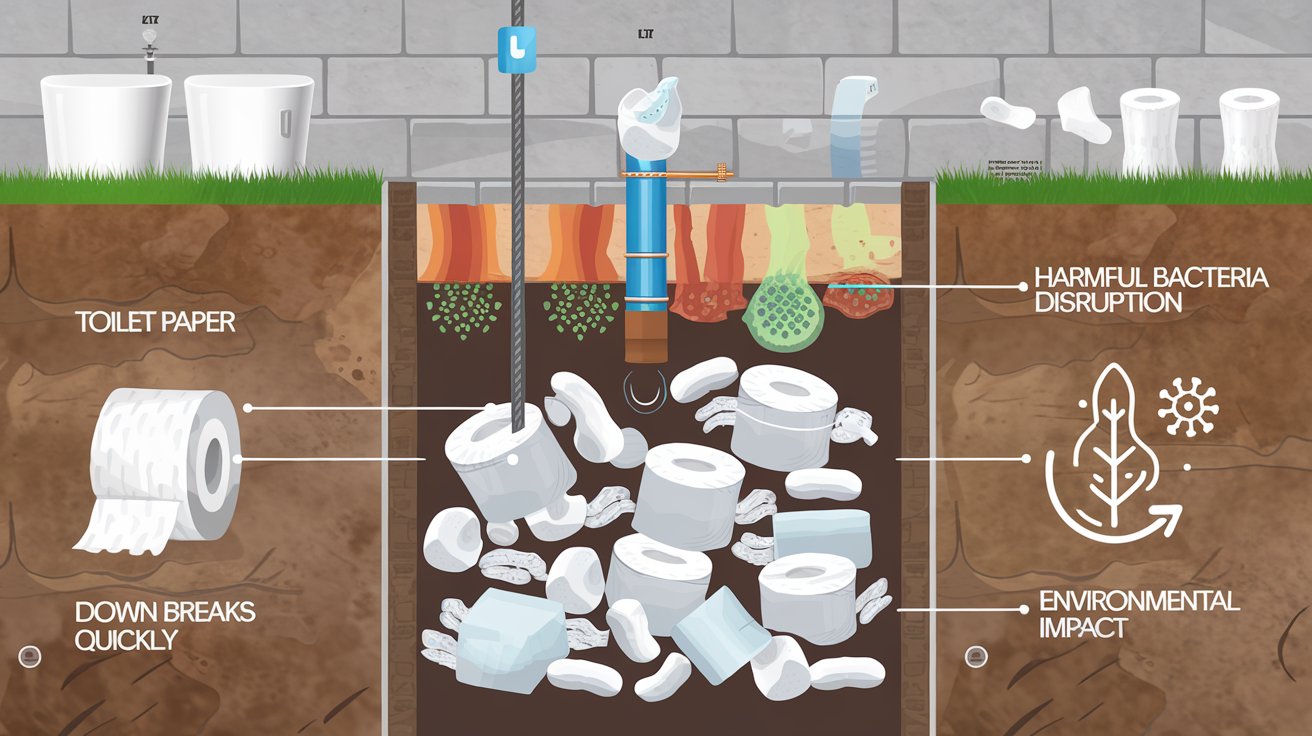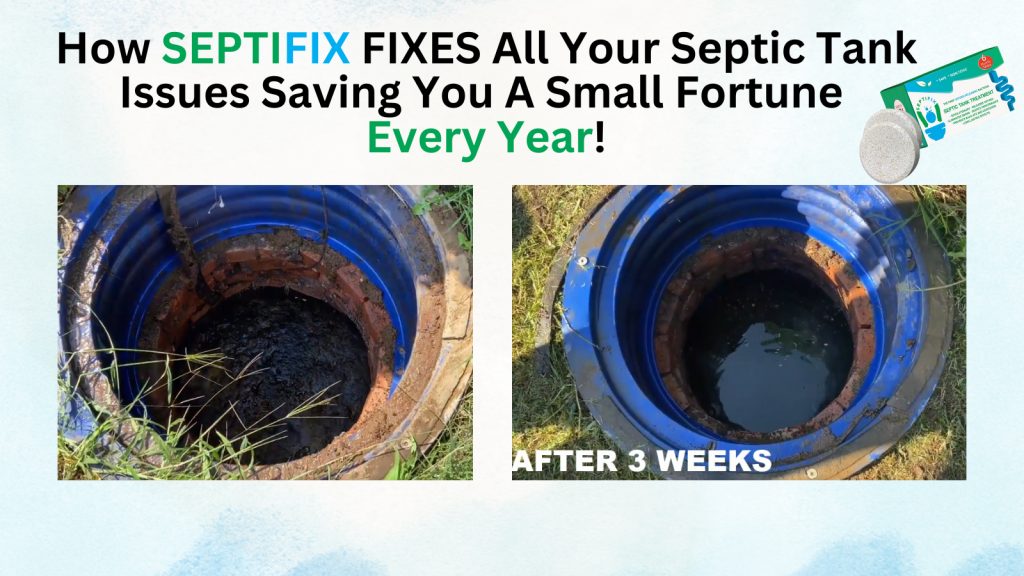Table of Contents
- Understanding Septic Systems and Their Function
- What Does Flushable Mean?
- Are Flushable Wipes Really Safe for Septic Systems?
- Risks of Using Flushable Wipes in Septic Systems
- Debunking the Myth: Facts and Studies
- Alternatives to Flushable Wipes
- FAQs About Flushable Wipes and Septic Tanks
- Septifix
- Septic Permit Links by State
Flushable wipes are often marketed as a convenient and septic-safe alternative to traditional toilet paper. However, their increasing popularity raises an important question: Are they truly safe for septic tanks? While these wipes promise flushability, the reality of their impact on septic systems tells a different story. This article will debunk the myth of flushable wipes being septic-friendly, explore the risks they pose, and provide practical alternatives to ensure the longevity of your septic system.
Understanding Septic Systems and Their Function
Septic systems are designed to manage and treat wastewater efficiently. They rely on a delicate balance of bacteria to break down organic matter, ensuring waste is safely decomposed and liquid is filtered back into the environment.
When non-biodegradable materials, like certain types of wipes, enter the system, they disrupt this balance. These items do not break down easily and can clog pipes, reduce bacterial activity, and lead to significant problems within the tank. Maintaining a septic system requires avoiding anything that could compromise its functionality, including materials that claim to be “flushable.”
What Does Flushable Mean?
The term “flushable” can be misleading. Manufacturers often use it to imply that a product can be disposed of via a toilet without causing issues. However, flushable simply means the product can pass through plumbing without immediate blockages.
Unlike toilet paper, which dissolves quickly in water, flushable wipes are made from durable fibers designed to hold up during use. These fibers may eventually break down, but their decomposition rate is much slower than necessary for septic systems. The result? Wipes accumulate in the system, leading to clogs and costly repairs.
Are Flushable Wipes Really Safe for Septic Systems?
Flushable wipes are not truly safe for septic systems despite their labeling. They are composed of synthetic materials and additives that resist breaking down in water. This resistance is beneficial for their functionality but problematic for your septic tank.
Research shows that these wipes often remain intact even after prolonged exposure to water, creating blockages in septic tanks, pipes, and municipal wastewater systems. Over time, this can lead to system backups and even total septic failure. The environmental impact is another concern, as these materials can enter waterways, harming marine ecosystems.
Risks of Using Flushable Wipes in Septic Systems
Using flushable wipes can lead to several issues:
- Clogging Risks: Flushable wipes can combine with other materials in the system, creating blockages that are difficult to remove.
- Bacterial Disruption: The additives in these wipes can affect the bacteria in septic tanks, reducing their ability to break down organic waste.
- Costly Repairs: Regular use of flushable wipes can result in recurring clogs and expensive repair bills.
- System Overload: The accumulation of non-biodegradable materials can eventually overwhelm the system, leading to premature failure.
Debunking the Myth: Facts and Studies
Numerous studies and reports have highlighted the dangers of flushable wipes:
- Case studies reveal that wipes labeled as flushable often remain intact during waste treatment processes.
- Experts agree that these wipes pose a significant risk to both residential septic systems and municipal wastewater facilities.
- Environmental organizations caution against using these products, citing their negative impact on both plumbing and natural ecosystems.
These findings make it clear: flushable wipes are not a septic-safe choice.
Alternatives to Flushable Wipes
To protect your septic system, consider these safer alternatives:
- Septic-Safe Wipes: Look for products specifically labeled as biodegradable and septic-safe.
- Wet Toilet Paper: Moisten toilet paper with water for a similar effect without the risks.
- Reusable Cloths: Use washable cloths for personal hygiene, ensuring they are laundered properly.
Additionally, adopting eco-friendly habits such as avoiding harsh chemicals and scheduling regular septic tank maintenance can help keep your system functioning optimally.
FAQs About Flushable Wipes and Septic Tanks
- Are any wipes truly safe for septic tanks?
Some wipes are labeled as septic-safe and biodegradable. However, even these should be used sparingly, as they still take longer to decompose than toilet paper. - How can I tell if a product is safe for my septic system?
Look for certifications such as “septic-safe” or “biodegradable” on the packaging. However, always approach these claims cautiously and consider alternatives. - What are the signs that my septic system is struggling?
Common signs include slow drainage, foul odors, gurgling sounds in plumbing, and pooling water around the drain field. - What should I do if I’ve been using flushable wipes?
Stop using them immediately. Consider having your septic tank inspected and pumped to remove any blockages or buildup caused by the wipes. - Can flushable wipes harm municipal wastewater systems?
Yes, flushable wipes contribute to blockages in wastewater treatment systems, increasing maintenance costs and environmental damage.
Flushable wipes may offer convenience, but they pose significant risks to septic systems. Their composition and slow decomposition rate make them unsuitable for safe use in septic tanks, leading to clogs, repairs, and environmental concerns.
By choosing safer alternatives and practicing proper septic maintenance, you can avoid these risks and extend the life of your system. Want to learn more about septic system care? Explore our detailed guides and product reviews to keep your system running smoothly!
Directory | Washington Septic Service Providers | Part 2
Directory | Washington Septic Service Providers | Part 1
DIY Repairs Are Always Cheaper
Septic Regulations in Rural Areas: Essential Guide for Rural Property Owners
The Role of Perforated Pipes in Drain Fields
What Happens During a Pumping Service?

Septifix








